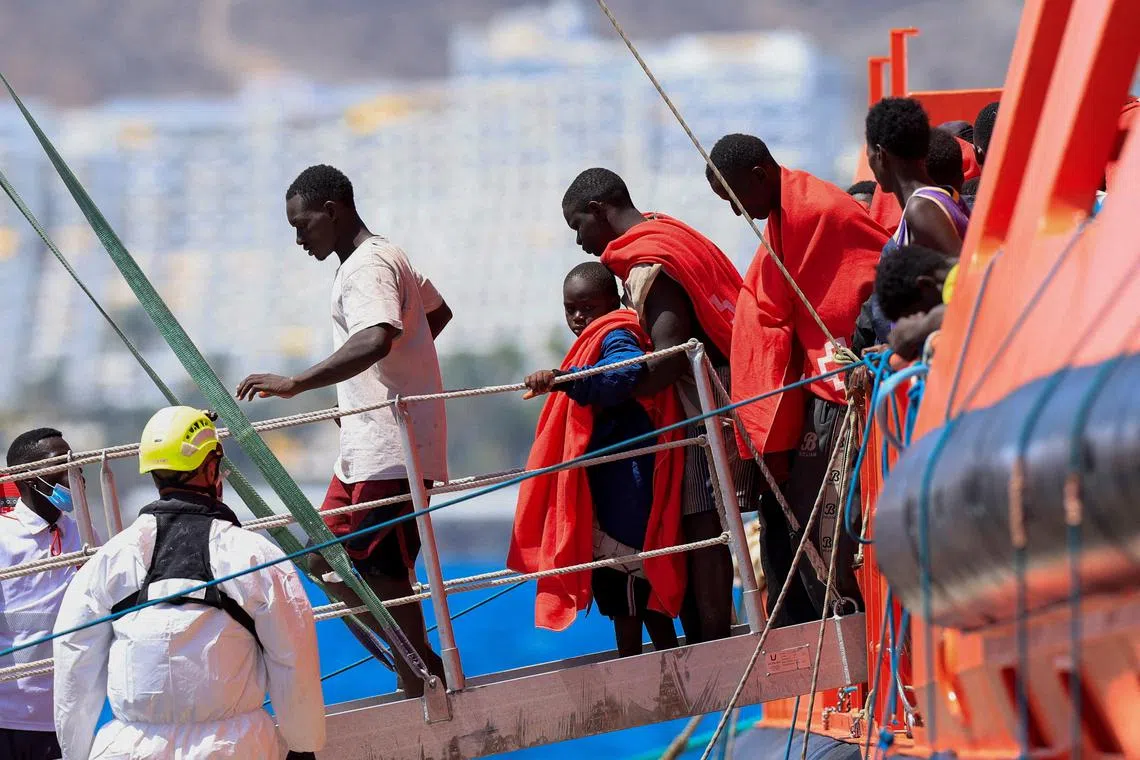Seven migrants found dead on beaches in Spain
Sign up now: Get ST's newsletters delivered to your inbox

Migrants disembarking from a Spanish coast guard vessel, on the Spanish island of Gran Canaria, in August 2024.
PHOTO: REUTERS
Follow topic:
- Seven migrants died on southern Spain beaches after their boats sank; six at Los Muertos and one at Las Salinas.
- Twenty-six migrants were rescued from one boat; the other carried 38 people. Authorities fear more bodies may surface.
- Migrants likely departed from Algeria. Spain is a key entry for migrants to Europe; 21,721 arrived by sea this year.
AI generated
MADRID - Seven migrants were found dead on two beaches in southern Spain on Sept 3 after their boats sank, local authorities told AFP.
Six bodies were discovered at dawn on Los Muertos beach in Carboneras in the southern region of Andalusia, while another was found on the nearby Las Salinas beach in Cabo de Gata, a source close to the investigation said.
The shipwrecks happened overnight but the bodies were discovered at dawn.
Twenty-six migrants were rescued from a boat which ran aground on the Los Muertos beach.
It was not clear how many people in total were travelling on it.
The other boat which reached Cabo da Gata was carrying 38 people.
The authorities have not ruled out the possibility of finding more bodies in the area in the coming hours.
The migrants are believed to have departed from Algeria, the source said.
Spain is one of the three main entry points for irregular migrants heading for Europe, along with Italy and Greece.
Authorities say thousands have died in recent years attempting the Atlantic crossing from Africa, mainly toward Spain’s Canary Islands.
Between January and August, 21,721 people arrived in Spain by sea, including 4,722 on the mainland, according to interior ministry data.
The figures show 357 boats reached the mainland between Jan 1 and Aug 31.
Arrivals in the Canary Islands – the main entry point for migrants in Spain – have fallen sharply this year, down 35 per cent compared with the same period in 2024.
Strong ocean currents and ramshackle vessels make the long crossing to the Canary Islands especially dangerous.
In contrast, the migration route from North Africa to the Balearics in the calmer Mediterranean has seen a surge this year, up 79 per cent. AFP

